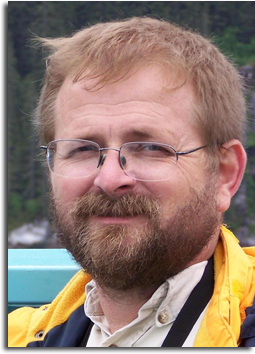
Jeff Byers Memorial Graduate Award in Chemistry and Chemical Engineering
The Jeff Byers Memorial Graduate Award was created to recognize a graduate student in the Department of Chemistry or the McKetta Department of Chemical Engineering who exhibits academic excellence, integrity, a collaborative spirit, compassion towards others, and who passionately contributes to the advancement of peers and to the disciplines of science and engineering.
Download the Jeff Byers Flyer for detailed information on the competition and nomination process.
About Jeffery D. Byers
Jeff Byers was an incredibly bright and technically gifted individual. To honor Jeff’s generosity, love and unique spirit, his friends, family and colleagues were moved to create a lasting legacy in his honor. Jeff’s life serves as a testament to his value in relationships, his scientific intrigue and his service to others.
Jeffrey Byers was not one of UT's best chemistry students. In fact, a couple of C-level grades in his first year of graduate school sent him into the cold world of interviewing for entry-level chemistry jobs with local businesses. But thanks to the persuasion of his graduate advisor, Stephen Webber, he decided to stick with the program and eventually earned his PhD in a mere 6 years. He used this quote, from A.A. Milne's Winnie the Pooh, as the preface to his dissertation:
"Well, said Pooh, "we keep looking for Home and not finding it, so I thought that if we looked for this Pit, we'd be sure not to find it, which would be a Good Thing, because then we might find something that we weren't looking for, which might be just what we were looking for, really."
"I don't see much sense in that," said Rabbit.
"No," said Pooh humbly, "there isn't." But there was going to be when I began it. It's just that something happened to it on the way."
Jeff did his post-doctoral work in laser spectroscopy at Georgetown University. His work at Georgetown led to recognition as a leader in the field - his papers have been cited in professional publications six times more than the average chemist's. What drove Jeff was always a combination of two elements: fascination with discovery and genuine affection for the people he was working with. We spent long nights and weekends in the lab calibrating lasers and taking data, with me serving as an enthusiastic, if only partially comprehending assistant. He had the gift, though, of being able to explain very complicated ideas using simple analogies—such as describing second harmonic generation using Julie Andrews shattering a glass with her voice in the movie Victor/Victoria, or photomask "assist" features using the Crabbe and Goyle sidekick goon characters from the Harry Potter books.
Both in and outside of the lab environment, Jefe (as he was called by those who loved him) was known as the ultimate "Mr. Fix-It." He was a carpenter, and one of the greatest joys in his life was working on our homestead, Yak Farm, where together we built our little house, his woodworking workshop, and a small guesthouse. In ragged t-shirts and cut-off jeans, sweaty and pushing wheelbarrows of limestone block or mixing mortar, one would never take him for a PhD-level scientist, and one of the most highly sought minds in the area of photolithography simulation. He was a chef, a plumber, an electrician, a gardener. He was the guy that friends always asked questions of when they had home repair problems or computer-related ones. Oftentimes he would drop what he was doing and go take care of the problem himself, rather than make suggestions of what to ask the contractor.
Whether in the research sector at Sematech, or in the private sector at KLA-Tencor, it seems the primary qualities that everyone attributes to Jeff are three-fold: the ability to make time to help others chase down answers to problems that they were working on—even if they really weren't "his" to solve; a fierce determination to find "the truth"—regardless of whether the answer was going to make any money; and finally, utter joy in working with and teaching a younger generation of scientists—reveling in late nights in the fab, or crafting presentations, and describing the fundamentals of 'how things came to be this way' as an industry veteran at the not-quite-venerable age of 43.
When an auto accident ultimately claimed his life on November 7, 2007, it may not have taken one of UT's better students, but we would be justified in saying that we mourn, celebrate, and now honor, one of its finest scholars, teachers, and men.
Nominations being accepted through April 15, 2024 for one $2,300 award.
Nominate a Student Today.
